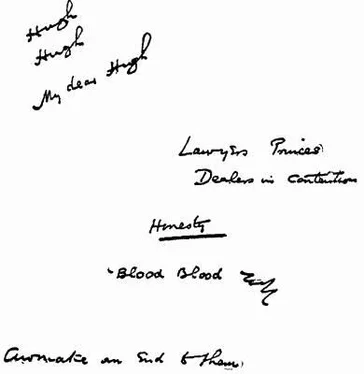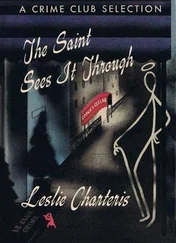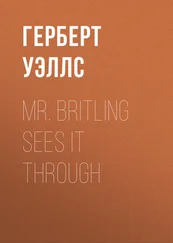Herbert Wells - Mr. Britling Sees It Through
Здесь есть возможность читать онлайн «Herbert Wells - Mr. Britling Sees It Through» весь текст электронной книги совершенно бесплатно (целиком полную версию без сокращений). В некоторых случаях можно слушать аудио, скачать через торрент в формате fb2 и присутствует краткое содержание. Жанр: Классическая проза, на английском языке. Описание произведения, (предисловие) а так же отзывы посетителей доступны на портале библиотеки ЛибКат.
- Название:Mr. Britling Sees It Through
- Автор:
- Жанр:
- Год:неизвестен
- ISBN:нет данных
- Рейтинг книги:4 / 5. Голосов: 1
-
Избранное:Добавить в избранное
- Отзывы:
-
Ваша оценка:
- 80
- 1
- 2
- 3
- 4
- 5
Mr. Britling Sees It Through: краткое содержание, описание и аннотация
Предлагаем к чтению аннотацию, описание, краткое содержание или предисловие (зависит от того, что написал сам автор книги «Mr. Britling Sees It Through»). Если вы не нашли необходимую информацию о книге — напишите в комментариях, мы постараемся отыскать её.
Mr. Britling Sees It Through — читать онлайн бесплатно полную книгу (весь текст) целиком
Ниже представлен текст книги, разбитый по страницам. Система сохранения места последней прочитанной страницы, позволяет с удобством читать онлайн бесплатно книгу «Mr. Britling Sees It Through», без необходимости каждый раз заново искать на чём Вы остановились. Поставьте закладку, и сможете в любой момент перейти на страницу, на которой закончили чтение.
Интервал:
Закладка:
But that we do struggle confusedly, with pitiful leaders and infinite waste and endless delay; that it is to our indisciplines and to the dishonesties and tricks our incompleteness provokes, that the prolongation of this war is to be ascribed, I readily admit. At the outbreak of this war I had hoped to see militarism felled within a year....
§ 6
From this point onward Mr. Britling's notes became more fragmentary. They had a consecutiveness, but they were discontinuous. His thought had leapt across gaps that his pen had had no time to fill. And he had begun to realise that his letter to the old people in Pomerania was becoming impossible. It had broken away into dissertation.
"Yet there must be dissertations," he said. "Unless such men as we are take these things in hand, always we shall be misgoverned, always the sons will die...."
§ 7
I do not think you Germans realise how steadily you were conquering the world before this war began. Had you given half the energy and intelligence you have spent upon this war to the peaceful conquest of men's minds and spirits, I believe that you would have taken the leadership of the world tranquilly—no man disputing. Your science was five years, your social and economic organisation was a quarter of a century in front of ours.... Never has it so lain in the power of a great people to lead and direct mankind towards the world republic and universal peace. It needed but a certain generosity of the imagination....
But your Junkers, your Imperial court, your foolish vicious Princes; what were such dreams to them?... With an envious satisfaction they hurled all the accomplishment of Germany into the fires of war....
§ 8
Your boy, as no doubt you know, dreamt constantly of such a world peace as this that I foreshadow; he was more generous than his country. He could envisage war and hostility only as misunderstanding. He thought that a world that could explain itself clearly would surely be at peace. He was scheming always therefore for the perfection and propagation of Esperanto or Ido, or some such universal link. My youngster too was full of a kindred and yet larger dream, the dream of human science, which knows neither king nor country nor race ....
These boys, these hopes, this war has killed ....
That fragment ended so. Mr. Britling ceased to read for a time. "But has it killed them?" he whispered....
"If you had lived, my dear, you and your England would have talked with a younger Germany—better than I can ever do...."
He turned the pages back, and read here and there with an accumulating discontent.
§ 9
"Dissertations," said Mr. Britling.
Never had it been so plain to Mr. Britling that he was a weak, silly, ill-informed and hasty-minded writer, and never had he felt so invincible a conviction that the Spirit of God was in him, and that it fell to him to take some part in the establishment of a new order of living upon the earth; it might be the most trivial part by the scale of the task, but for him it was to be now his supreme concern. And it was an almost intolerable grief to him that his services should be, for all his desire, so poor in quality, so weak in conception. Always he seemed to be on the verge of some illuminating and beautiful statement of his cause; always he was finding his writing inadequate, a thin treachery to the impulse of his heart, always he was finding his effort weak and ineffective. In this instance, at the outset he seemed to see with a golden clearness the message of brotherhood, or forgiveness, of a common call. To whom could such a message be better addressed than to those sorrowing parents; from whom could it come with a better effect than from himself? And now he read what he had made of this message. It seemed to his jaded mind a pitifully jaded effort. It had no light, it had no depth. It was like the disquisition of a debating society.
He was distressed by a fancy of an old German couple, spectacled and peering, puzzled by his letter. Perhaps they would be obscurely hurt by his perplexing generalisations. Why, they would ask, should this Englishman preach to them?
He sat back in his chair wearily, with his chin sunk upon his chest. For a time he did not think, and then, he read again the sentence in front of his eyes.
"These boys, these hopes, this war has killed."
The words hung for a time in his mind.
"No!" said Mr. Britling stoutly. "They live!"
And suddenly it was borne in upon his mind that he was not alone. There were thousands and tens of thousands of men and women like himself, desiring with all their hearts to say, as he desired to say, the reconciling word. It was not only his hand that thrust against the obstacles.... Frenchmen and Russians sat in the same stillness, facing the same perplexities; there were Germans seeking a way through to him. Even as he sat and wrote. And for the first time clearly he felt a Presence of which he had thought very many times in the last few weeks, a Presence so close to him that it was behind his eyes and in his brain and hands. It was no trick of his vision; it was a feeling of immediate reality. And it was Hugh, Hugh that he had thought was dead, it was young Heinrich living also, it was himself, it was those others that sought, it was all these and it was more, it was the Master, the Captain of Mankind, it was God, there present with him, and he knew that it was God. It was as if he had been groping all this time in the darkness, thinking himself alone amidst rocks and pitfalls and pitiless things, and suddenly a hand, a firm strong hand, had touched his own. And a voice within him bade him be of good courage. There was no magic trickery in that moment; he was still weak and weary, a discouraged rhetorician, a good intention ill-equipped; but he was no longer lonely and wretched, no longer in the same world with despair. God was beside him and within him and about him.... It was the crucial moment of Mr. Britling's life. It was a thing as light as the passing of a cloud on an April morning; it was a thing as great as the first day of creation. For some moments he still sat back with his chin upon his chest and his hands dropping from the arms of his chair. Then he sat up and drew a deep breath....
This had come almost as a matter of course.
For weeks his mind had been playing about this idea. He had talked to Letty of this Finite God, who is the king of man's adventure in space and time. But hitherto God had been for him a thing of the intelligence, a theory, a report, something told about but not realised.... Mr. Britling's thinking about God hitherto had been like some one who has found an empty house, very beautiful and pleasant, full of the promise of a fine personality. And then as the discoverer makes his lonely, curious explorations, he hears downstairs, dear and friendly, the voice of the Master coming in....
There was no need to despair because he himself was one of the feeble folk. God was with him indeed, and he was with God. The King was coming to his own. Amidst the darknesses and confusions, the nightmare cruelties and the hideous stupidities of the great war, God, the Captain of the World Republic, fought his way to empire. So long as one did one's best and utmost in a cause so mighty, did it matter though the thing one did was little and poor?
"I have thought too much of myself," said Mr. Britling, "and of what I would do by myself. I have forgotten that which was with me ...."
§ 10
He turned over the rest of the night's writing presently, and read it now as though it was the work of another man.
Читать дальшеИнтервал:
Закладка:
Похожие книги на «Mr. Britling Sees It Through»
Представляем Вашему вниманию похожие книги на «Mr. Britling Sees It Through» списком для выбора. Мы отобрали схожую по названию и смыслу литературу в надежде предоставить читателям больше вариантов отыскать новые, интересные, ещё непрочитанные произведения.
Обсуждение, отзывы о книге «Mr. Britling Sees It Through» и просто собственные мнения читателей. Оставьте ваши комментарии, напишите, что Вы думаете о произведении, его смысле или главных героях. Укажите что конкретно понравилось, а что нет, и почему Вы так считаете.






